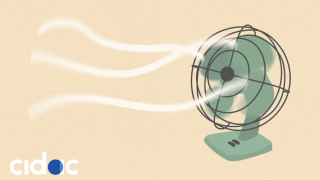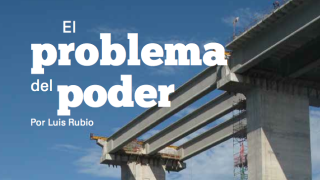In his book on inequality, Thomas Piketty obliged the world to confront a politically explosive matter. Although his critics have quashed most of the argument in technical terms, nothing can dislodge the political transcendence that inequality has acquired. Beyond its usefulness for electoral and populist ends, inequality is inherent in human nature; the relevant question from my perspective is whether this has reached such an extreme that it is a menace to stability and if this is so, what should be done about it.
According to Piketty, the proportion of wealth in the hands of a small worldwide elite will continue to grow because the rate of return on the capital is greater than the economic growth rate. His conclusion is that “capitalism generates arbitrary and unsustainable inequalities that radically undermine the meritocratic values on which democratic societies are based”. His solution is to tax the rich.
Ian Morris, a historian, has studied inequality through the last fifteen thousand years (compared with Piketty’s 250). Morris’s conclusion is that each era develops an equilibrium in terms of equality-inequality that ties in with the circumstances and needs of the moment. “Different economic systems function best with different levels of inequality, creating selective pressures that reward groups moving toward the most effective level and punish those moving away from it. It is also clear that transitions between systems can be particularly traumatic, and it is possible that we are the verge of such a transition now”.
The main source of inequality at the international level in the last decades appears to arise from a combination of two factors: on the one hand, the accelerated population growth in the seventies and eighties (a period during which the world population doubled), and, on the other, the growing globalization of the economy. Both factors have expedited inequality, above all because, on increasing the reserve of talent worldwide within the context of globalization, each person –from the most modest worker to the most pretentious entrepreneur- was suddenly propelled into a space of competition that had never before existed. In everything relative to standardized production, it is the same whether a product is manufactured in Malaysia or in Guanajuato. On its part, technology facilitates the transfer of services, putting enterprises at the most obscure corners of the planet in competition with each other. In this context, a child born in the northern Mexican city of Hermosillo is competing head to head with another of his same age in Shanghai or in São Paulo. The question is whether he has a similar capacity (or “human capital”) for competing.
In this era, the capacity to compete successfully is reduced to two fundamental factors: costs and human capital. Costs are determined by tangible aspects such as infrastructure and market access, as well as monetary factors, such as exchange rates. Human capital is concerned, essentially, with the education that each person has and his capacity for functioning in niches of high competition, usually determined by the technology itself.
In his book Unequal But Fair, Marc de Vos establishes another dimension. According to him, the accumulation of old money does not determine, as Piketty affirms, future inequality, but rather it has much more to do with the capacities of each individual. De Vos proposes that we are in transit toward an economic system that fuses human with financial capital in which the human element is increasingly becoming dominant. De Vos’s prescription is not to lose oneself in futile attempts to tax the capital but preferably to broaden opportunities for those who are losing ground. This, it appears to me, is the correct focus and the great challenge of the economic development of Mexico.
The inequality in the country stems from two key factors: on the one hand, the enormous polarization that exists in the educative system that tends to preserve (thus, expanding) the inequality. Insofar as a child from the urban middle class retains better opportunities to learn than the son of a farm worker in the southern Mexican state of Oaxaca, the inequality gap grows. In this regard, it is obvious that the core proposal of the educative system –to level the playing field for all children independently of their circumstances or origin- has been an outrageous failure. For many decades, this issue did not seem important because the fatal combination of technological advancement and globalization that has inexorably exacerbated the differences had not yet materialized. Today the challenge is monumental.
The other source of inequality derives from the absence of competition in the Mexican economy, which entails the permanence of sources of wealth of the type that Piketty observes as the engines of a growing gap. A monopoly (or the control of a market) implies that an entrepreneur, union leader or politician does not have to compete, ensuring what economists denominate “rents”, excessive profits that do not derive from the market. In this respect, it is the same for a company that controls a determined service or product, the union leader for whom a percentage of the company’s contracts is guaranteed or the politician with foreknowledge of where an airport is to be built and dedicates himself to buying up land in the area before the fact in order to sell it later at a huge profit.
Inequality in Mexico did not fall from the sky. It was created by individuals of flesh and blood. Thus, it can in turn be dismantled.



Comments